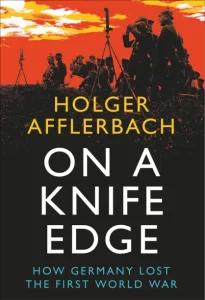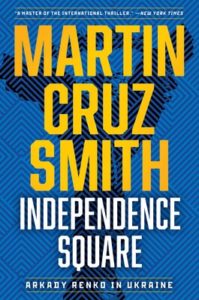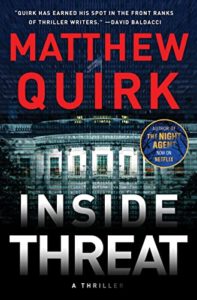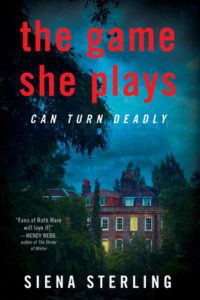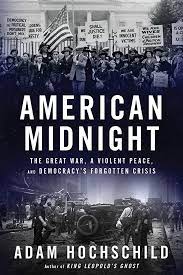How did the Germans lose WWI when at times, according to this new history, they came close to winning early on? The reasons are varied and fascinating in a beautifully detailed, in-depth exploration of German motives, perceptions, actions, and failures of imagination.
One determining factor was that Germany’s high command was riven by strategic and personal disputes and these also existed across the various “power centers” in Kaiser Wilhelm II’s empire at the time including the Kaiser and his court, the German parliament, the army’s Supreme Command and the army itself. Some generals wouldn’t even speak to each other for weeks at a time. And conditions only got worse over time with miscommunications and fiction between generals and politicians, politicians and the high Command, with the Kaiser growing more and more delusional.
Just as significant, Germany’s new intelligence service was severely understaffed and thus prone to making wildly incorrect judgments, as for instance ranking the U.S. a less significant military power than Bulgaria. Or positing that England could be handily quarantined by only a handful of U-boats. Far more devastating, in The Battle of Verdun, the Germans grossly overestimated French losses and never planned for heavy German losses.
German prejudice about the French was widespread among the powerful decision makers. The French were under-rated in terms of their military performance, and perhaps just as seriously, as a people. One high echelon leader thought that “the French national character showed a tendency towards hysterical mood swings.” That’s funny and tragic at the same time.
Another military leader believed that Germany would always beat France no matter what, since “the character of our dear neighbours has hardly changed since 1870.” Such dismissive and contemptuous views were widespread in Germany as a whole and certainly among the military’s elite, despite French superiority of numbers in many sectors of the Western Front and Germany’s continued inability to strike a knockout blow on their opponents. As if such arrogance wasn’t enough to tip the scales against Germany, political and military leaders could not agree on war aims, what would be an acceptable peace agreement, and whether to annex conquered territory or not. The politicians too often “chose the stupidest possible course of action” and overall throughout the war, “Germany’s approach was largely incoherent and chaotic.”
Though tragedy abounds, sometimes the events slip into farce. One example: Germany and Austria-Hungary had divided Russian Poland between them and wanted to mobilize a Polish army to fight against Russia. They proclaimed a new Kingdom of Poland without there being a king, government, constitution, parliament or anything else you’d expect for a new nation. The plan was a dud.
While the book is somewhat slow to get going, once the author delves deeper into the often chaotic decision-making process for Germany and its allies, this study becomes truly compelling. I’ve read many books about WWI, but because this one focuses less on the battles and more on everything happening behind the scenes, the progress of the war seems much clearer. It’s a refreshing narrative and the memoirs, diaries, and letters of key figures that he quotes give the book startling immediacy. ★★★★
Lev Raphael has reviewed for The Washington Post, The Detroit Free Press and other publications as well as three public radio stations in Michigan. He recently reviewed the classic WWI novel All Quiet on the Western Front.

